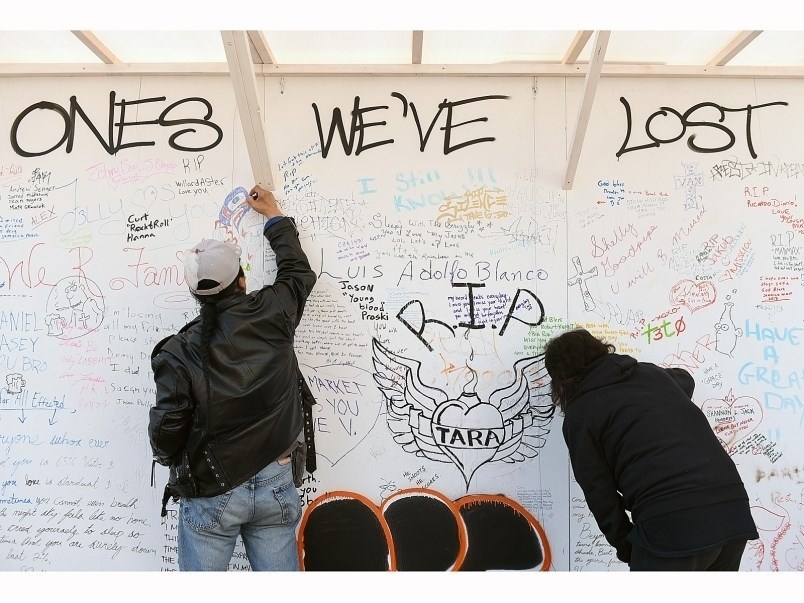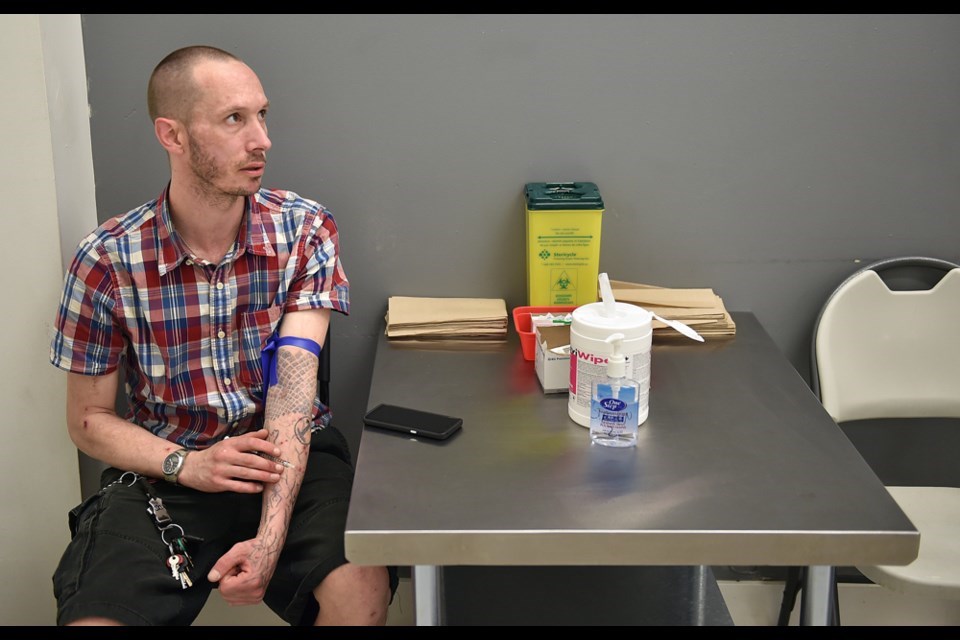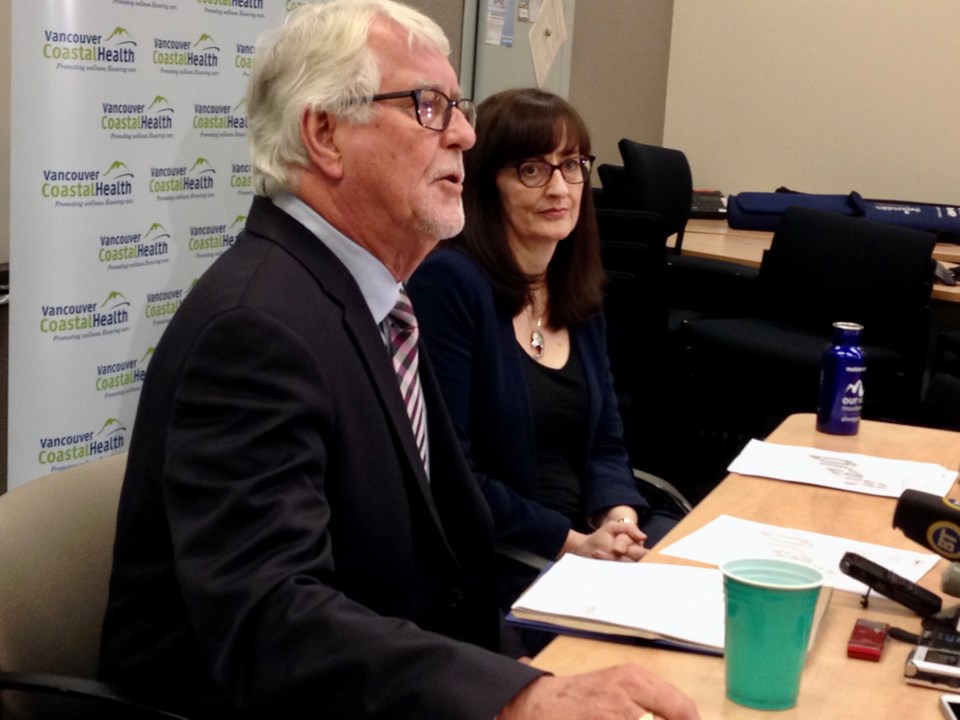Kendall’s decision allowed for real-time information on overdose deaths to be collected, reported and analyzed across the health system
It also sent a message to politicians that the crisis had to be addressed in a much bigger and bolder way in the form of policy and action.
Governments began to invest more money, “overdose prevention sites” opened and medication-assisted treatment increased.
An overdose emergency response centre was created and anti-stigma campaigns were launched.
Now there is an effort led by Mayor Kennedy Stewart to have the federal government decriminalize simple possession of illicit drugs in Vancouver.
Still, the death toll mounts.
Five years after Kendall called a public health emergency, the number of overdose drug deaths in B.C. increased from 991 in 2016 to 1,724 last year.
The from the BC Coroners Service show the crisis is not abating, with 174 deaths reported in January and 155 in February.
The numbers represent British Columbians — teenagers to seniors in their 70s — who perished from using toxic drugs, most of which mixed with high concentrations of fentanyl and its analogues.
Glacier Media spoke to Kendall this week by telephone to get his thoughts five years later on what is working and what isn’t as an average of 5.5 people continue to die each day in B.C.
(The interview has been condensed and edited for clarity.)
What’s on your mind five years after you declared a public health emergency?
It did look in 2019 that the death rate was coming down. Then COVID came along, and the numbers shot up to even higher than we'd ever seen before. That trend, unfortunately, looks like it's moving into 2021 as well. It's really sobering. And the other sobering fact is that although more people died in 2020 from toxic drugs that have died from COVID, COVID has really taken all our attention. So it's clear that there's a different response to different crises. And that's really rather sad, I think.
Do you think there would have been fewer overdose deaths in the last year, if we weren’t living through a pandemic?
I think the numbers would be way lower. And I think that we would have switched our attention not just to preventing death, but also to looking at how we prevent overdoses. At the news conferences that we had with [B.C.’s Chief Coroner] Lisa Lapointe we we're starting to really focus on the impact of overdose on individuals brains — cumulative brain damage, anoxic brain damage, the disabilities that arise from overdose — and looking to see how to lower numbers of overdoses and deaths. We could have continued to push in that area. Government and societal attention is now focused on COVID. We're not seeing ministers on a weekly basis report out on the number of overdose deaths and offering their condolences to families of those who've lost loved ones. COVID has sucked so much oxygen out of the room.
 BC Coroners Service data shows 1,724 people died of a drug overdose in the province last year. File photo Dan Toulgoet
BC Coroners Service data shows 1,724 people died of a drug overdose in the province last year. File photo Dan ToulgoetHere we are in April 2021 and people continue to die in record numbers. Some would argue calling the emergency has had little or no effect at preventing overdose deaths. What do you say to that?
The numbers have gone up. But COVID and we saw an immediate jump in overdoses [after the pandemic was declared in March 2020] as a result of no face-to-face contact and the ability to intervene. But I think, too, we have seen significant changes in the government’s response. I have to credit both the previous Liberal government and current NDP government for following through on safer supply [of drugs], opening supervised consumption sites, overdose prevention sites and anti-stigma campaigns. There is a focus on increasing the continuum of care that is available for people. But I think again that unfortunately COVID has put a placeholder on it.
The provincial and federal governments continue to say they’re invested in reducing overdose deaths in B.C. and across the country. The overdose death statistics and the record number of overdose calls answered by paramedics and firefighters suggest a lot more can be done. What more has to be done?
Politicians need to stop temporizing around addressing the criminalization and the prohibition regime. They need to stop being scared of looking at a sensible regulatory regime. We need to increase access to a safer supply. And I think we also need to really broaden access to a whole range of interventions to people. Alberta is investing heavily in recovery, but it tends to be in an abstinence form of recovery, which we know from the evidence that it will work for a lot of people. But there’s even a larger number of people for whom it won’t work. Single-minded attention to one area of a continuum doesn’t work. So you really need a broad range of treatment and access to different forms of intervention to really get this working. We need harm reduction, we need treatment, we need recovery. We need to treat this as a medical problem, and not a criminal problem. We need to legalize and regulate supply of safer pharmaceuticals for those people who absolutely need it to replace the toxic ones.
But haven’t you and others been saying this for years?
Public opinion is slowly changing. I was one of the people engaged in trying to get the first supervised consumption site [Insite on East Hastings] in Canada. It That took several years of work to get it open. I think we’re at another crossroads when government might finally be ready to say ‘try this’ because we can’t go on seeing so many people die, and so many families ripped apart.
 Colin Ross at the Pier Health Resource Centre on Main Street in 2018 preparing to inject liquid hydromorphone into his arm. File photo Dan Toulgoet
Colin Ross at the Pier Health Resource Centre on Main Street in 2018 preparing to inject liquid hydromorphone into his arm. File photo Dan ToulgoetBut we have a safe supply of drugs in B.C. — maybe not to the extent advocates would like — but it’s there.Suboxone and some are prescribed prescription heroin. Insite remains open and other supervised and overdose prevention sites are open. And Vancouver police say in Vancouver. So what else is there to do?
I go back to COVID. That’s like saying, ‘Well, we have a lot of people distancing and wearing masks. Quite a number of people have been vaccinated. What else are we going to do?’
Right, but everyone wants more. Police Chief Adam Palmer wants what he calls the mayor wants decriminalization of drugs and on it goes. Meanwhile, the death toll climbs.
Well, all of those things are needed. They're all going to be part of a resolution to the problem. We also need to stop bringing so many vulnerable people into the area. Interventions and parental support, basic income, decent housing that is affordable — all of these things would reduce the vulnerability to help people move out of a drug or street-oriented lifestyle.
As you know, the powerful synthetic opioid, fentanyl, has been linked to more than 80 per cent of deaths in B.C. in recent years. Is fentanyl here to stay?
I think as long as you keep up a prohibition regime with no other access to safer commodities, then yes, I think fentanyl will be with us. I mean, how easy is it to smuggle an ounce or less than an ounce of a powder compared with bales of opium or stacks of heroin? Just given its potency, you get so many tens of thousands of doses. You look at the massive rise in shipping, by email and packages going back across the country, it's impossible to monitor everything.
I spent in the Downtown Eastside prior to the pandemic being declared and learned more about patients there accessing prescription heroin, or diacetylmorphine. I understand that you, Dr. Martin Schechter and a pharmacist have formed a company called Fair Price Pharma to make diacetylmorphine more accessible in Canada.
At the moment it’s more of an idea. It is a company, but it's an idea. We're trying to explore how one could — within the Health Canada regulations — get a licence to produce, import, and compound medical grade heroin for use in addictions treatment. That's primarily the goal of it, and to do it in an affordable way.
And have you had talks with Health Canada about this?
Oh yes, they’re well aware of the program and currently reviewing applications from Fair Price Pharma.
When do you expect a response?
Who knows? It has taken longer than we thought it would. But we understand that these processes can take time. Just that in the face of the ever increasing numbers, it would be nice if it was sooner rather than later.
Any final thoughts?
Looking at the number of deaths, you realize that there's still a long way to go. But I'm hoping that governments are poised to actually take some of the steps that need to be taken. Lots of lives are depending on that. We've seen what we can do when we get together as a province or country to address a challenge. We have to realize that this does affect everybody —maybe not quite like COVID — but it really has the same kind of mortality toll and high morbidity toll as well.
@Howellings




